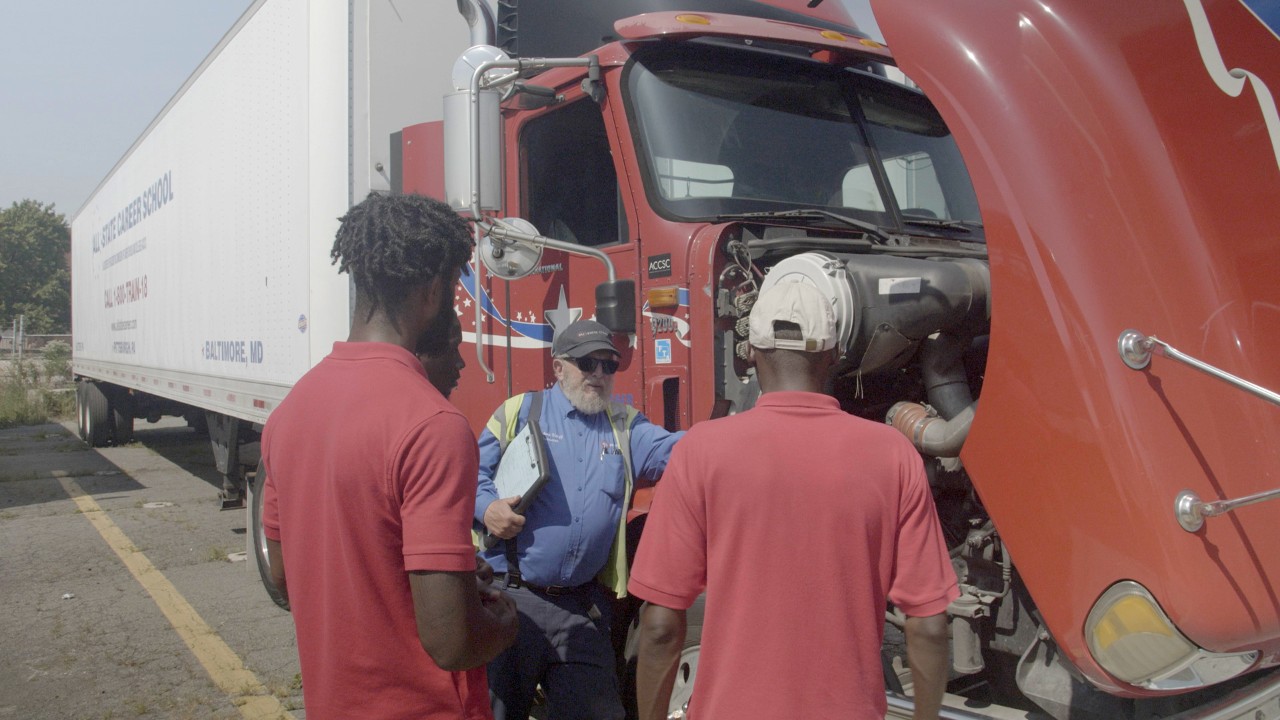Commercial vehicles are involved in thousands of accidents each year, many of which result in injuries to other drivers, bystanders, and commercial drivers themselves. According to the National Safety Council (NSC), the number of large trucks involved in injury crashes has risen steadily over the last decade, climbing approximately 12% since 2016.
Even accidents that do not result in injuries can still be costly. The financial toll of commercial vehicle crashes is estimated in the tens of billions of dollars, stemming from expensive repairs and lost revenue due to downtime.
Defective equipment plays a role in many commercial vehicle accidents, which is why preventive maintenance is essential for both drivers and fleet operators. Regular inspections and repairs help detect and resolve mechanical issues before they lead to collisions or breakdowns.
For aspiring commercial drivers, learning what preventive maintenance is and why it is so important is a key step in preparing for a successful career.
Preventive Maintenance Definition
Preventive maintenance refers to routine services performed on vehicles to identify and address any potential mechanical issues before they lead to more serious problems, such as unexpected breakdowns and costly repairs. In other words, preventive maintenance is proactive maintenance.
The opposite of preventive maintenance is reactive maintenance, which focuses on addressing issues only after they arise. Changing a blown tire or jump-starting a vehicle with a dead battery, for instance, are types of reactive maintenance.
Common examples of preventive maintenance for a commercial vehicle include the following:
Checking and replacing the engine oil and filter
Inspecting the brakes
Rotating the tires
Monitoring the fluid levels (transmission, coolant, brake, etc.) and changing or filling them as needed
Checking the electrical components, such as the turn signals and warning lights
Maintaining the battery’s performance through regular testing and replacement
Some of these actions are part of a driver’s regular pretrip inspection, which they are required to perform before every trip. The frequency of the other preventive maintenance activities ultimately varies by the type of service and the condition of the vehicle, including its age and the number of miles on it. Commercial drivers should check their tire pressure and the overall condition of their tires every day, for example, while more complex services should be performed every few thousand miles.
An effective preventive maintenance strategy does not simply entail a single task here and there. It is a comprehensive plan that involves doing regular inspections, adhering to service schedules, and keeping detailed records to ensure vehicles are monitored and maintained before problems arise.
Benefits of Preventive Maintenance in Commercial Driving
Performing routine preventive maintenance yields numerous advantages to commercial fleet owners and their drivers, from lower expenses and greater cost efficiency to enhanced safety. Key benefits of preventive maintenance include the following.
Improves Safety
Keeping a commercial vehicle in good working order through preventive maintenance ensures that it is safe to drive and minimizes the risk of hazards. Inspecting and maintaining tires, brakes, and lights, for example, helps prevent accidents that put commercial drivers and those they share the road with in danger.
Reduces the Risk of Breakdowns
In the trucking industry, breakdowns can be quite costly in terms of both time and revenue. Breakdowns necessitate expensive repairs and can cause drivers to miss delivery deadlines and potentially lose business. Keeping vehicle batteries in optimal condition, regularly changing the oil, and performing other forms of preventive maintenance is the best way to ensure vehicles and their drivers stay on the road and meet their schedule commitments.
Avoids Costly Repairs
Addressing a vehicle issue after it has escalated into a problem — a seized engine resulting from a low oil level, for example — is often more expensive than the cost of preventive maintenance. Such failures not only require repairs and replacements but also can trigger ancillary expenses, such as repairs or fines associated with accidents, which can be very costly.
Extends the Life of the Vehicle
Properly maintaining a commercial vehicle and its component parts minimizes the wear and tear on the vehicle, potentially extending its operational lifespan by years and hundreds of thousands of miles. By taking care of a vehicle’s tires, replacing the filters and brake pads when necessary, and regularly changing the oil — among other services — commercial fleets can avoid major repairs on the vehicle and delay overhauls, maximizing the return on their investment.
Ensures Regulatory Compliance
The Federal Motor Carrier Safety Administration (FMCSA), a division of the Department of Transportation (DOT), requires commercial drivers and carriers to perform preventive maintenance and keep detailed service records for every commercial vehicle. Failing to do so can lead to fines and penalties. Routine maintenance also helps vehicles meet safety and emissions standards, ensuring they pass inspections and can continue to operate.
Preventive Maintenance and Other Skills for Commercial Drivers
Commercial drivers rely on a diverse skill set to do their jobs, encompassing both technical skills, often referred to as hard skills, and broader professional competencies, known as soft skills.
The most important technical skills for commercial drivers include the following:
Mechanical skills: Effective preventive maintenance requires drivers to have at least basic mechanical knowledge, enabling them to perform tasks such as putting chains on tires, topping up fluids, and conducting pretrip inspections.
Navigational skills: The ability to navigate highways and byways, including mapping out efficient routes and adapting when GPS suggestions are not feasible, is essential for commercial drivers.
Driving skills: Top-notch driving skills are a must for commercial drivers, from basic handling skills to proficiency with more advanced maneuvers. This contributes not only to safer driving but also to greater efficiency.
The most crucial soft skills for drivers include the following:
Communication: For commercial drivers, being able to clearly and promptly communicate with dispatchers, receivers, and other drivers is vital, allowing them to share information about roadway hazards and coordinate deliveries. Good communication skills help drivers ensure they work safely and efficiently, while also helping them build professional relationships.
Organization: Effective organization skills are key to commercial drivers’ success. Proficiency in planning detailed routes ensures they can make timely deliveries, while being able to maintain accurate records — including in logbooks and regulatory paperwork — keeps their operations compliant and efficient.
Time management: Commercial driving is a deadline-driven business, so prioritization and time management competencies are essential. Being skilled at managing their time allows drivers to plan and balance their driving hours, rest breaks, and delivery schedules, maximizing their productivity.
The Key to Commercial Driving Excellence
Practicing preventive maintenance is a vital aspect of commercial driving operations, enabling drivers and carriers to keep vehicles in peak condition, cut repair costs, and meet regulatory requirements — all of which contribute to a safer and, ultimately, more successful business.
If you are interested in becoming a commercial driver, explore All-State Career’s commercial driving training programs:
Combining classroom instruction and hands-on, behind-the-wheel skill development and training, our comprehensive curriculum can equip you with the skills you need for a rewarding career as a commercial driver.
Discover how All-State Career can prepare you for life on the road.
Recommended Readings
How to Become a Commercial Truck Driver
7 Truck Driving Jobs With CDL Training
What Does the Commercial Driver Shortage Mean for CDL Trucking Students?


